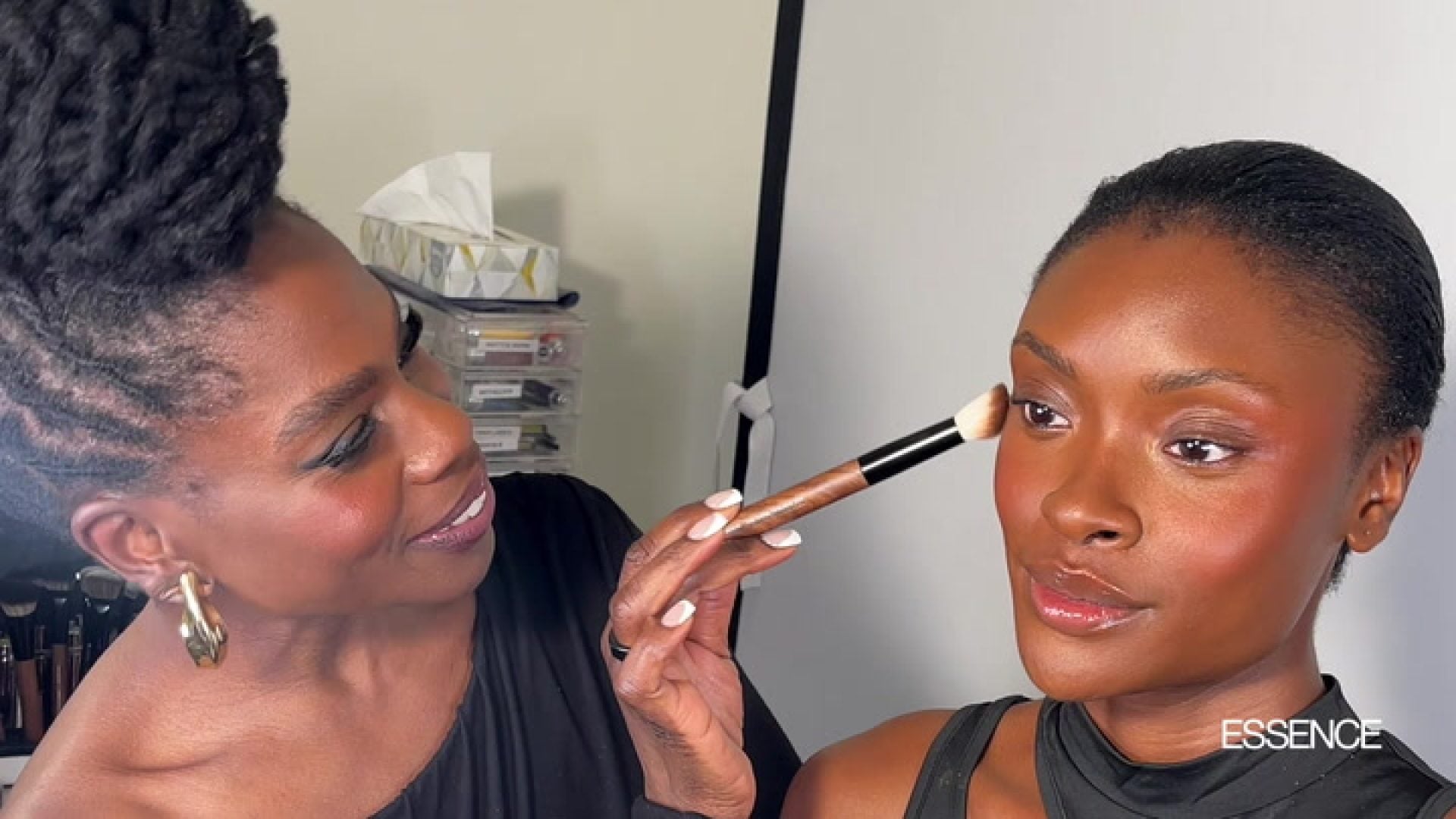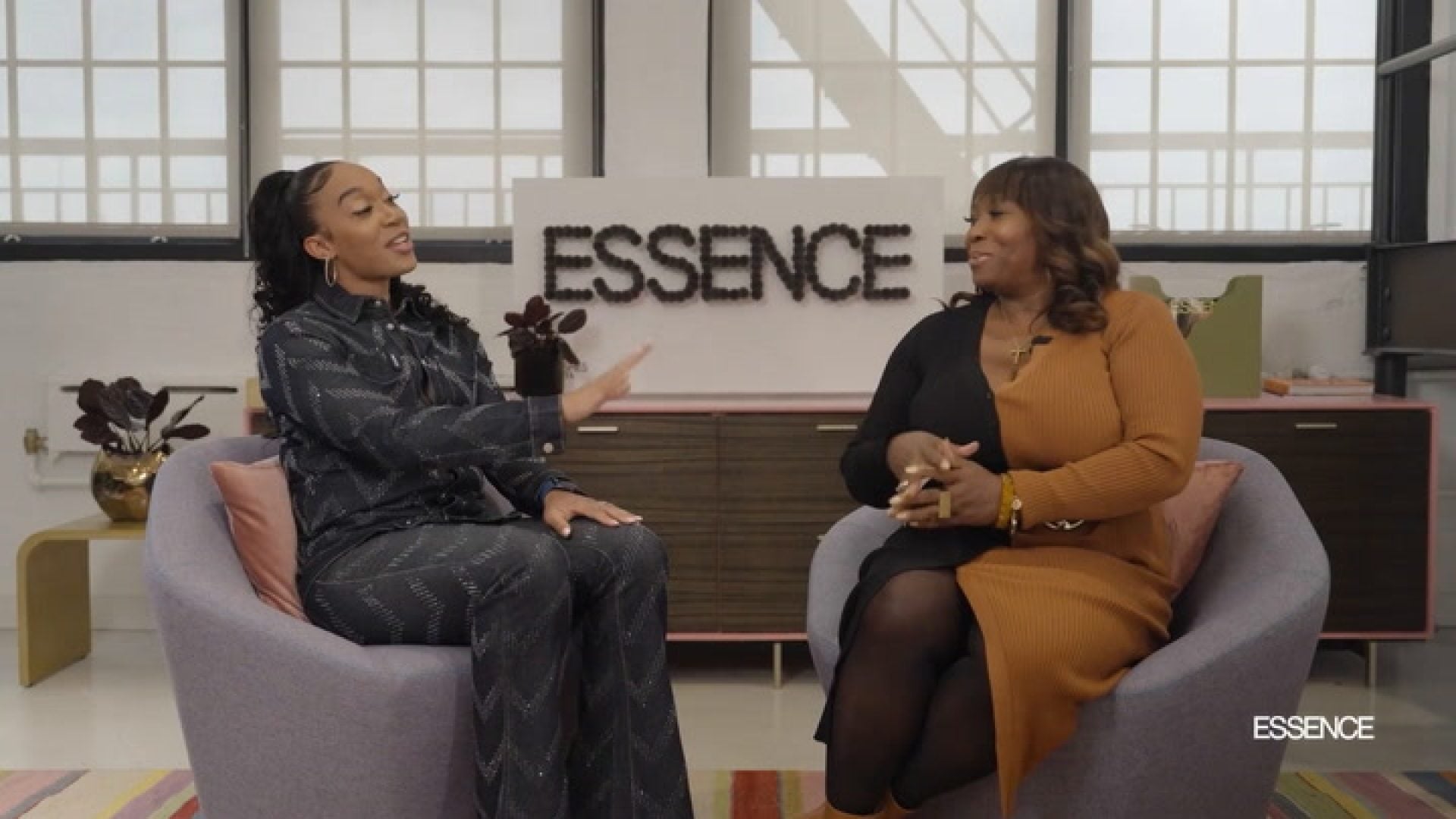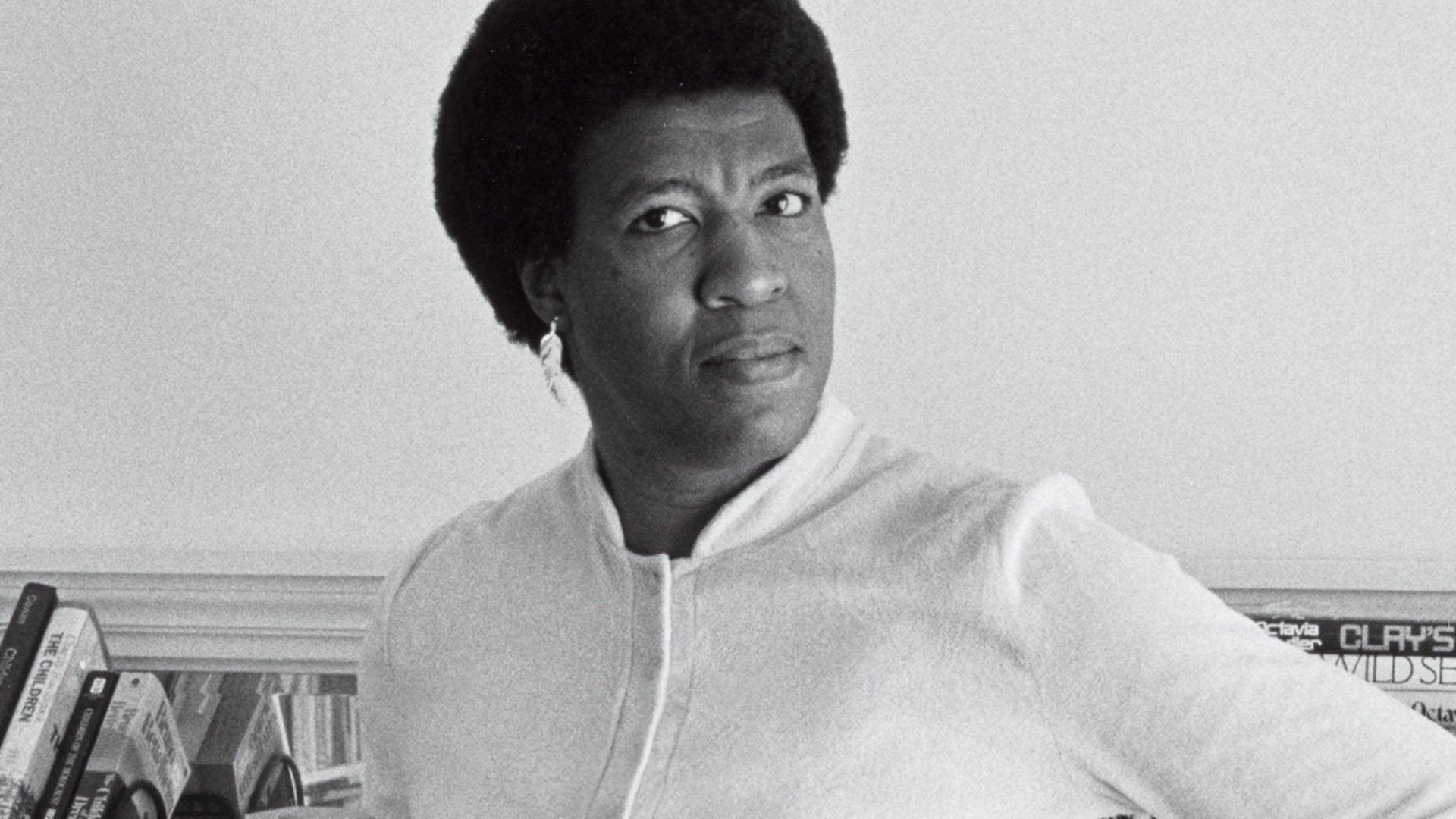
In 2000 I made my way up the walkway of a house outside of Seattle with my husband, author Steven Barnes, to see his longtime friend Octavia Butler. We were greeted by the sound of Motown music blasting through the windows. We had to knock hard to be heard. Octavia answered the door, apologizing.
“I listen to music when I write,” she said.
And so began our 90-minute visit, which Steve and I recorded to write an article about her. I had met Octavia—and Steve—only three years earlier, at a Black science fiction, fantasy and horror conference at Clark Atlanta University.
For much of that visit, I listened to her in rapt awe while I marveled at where I was sitting, embraced by books cramming the shelves, being served lentil soup and French bread by the Octavia Butler. With her six-foot height and a deep, distinctive voice that made listeners lean in to hear her every carefully chosen word, Octavia was a giant in life—and her power and impact have continued to grow since her death in 2006. A television series based on her novels about telepaths is in development at Amazon Prime Video, and her papers are housed within the palatial walls of the Huntington Library Art Collections, and Botanical Gardens in San Marino. Her collection is not far from where she grew up in Pasadena, but it’s a universe away from the humble beginnings that framed her childhood.
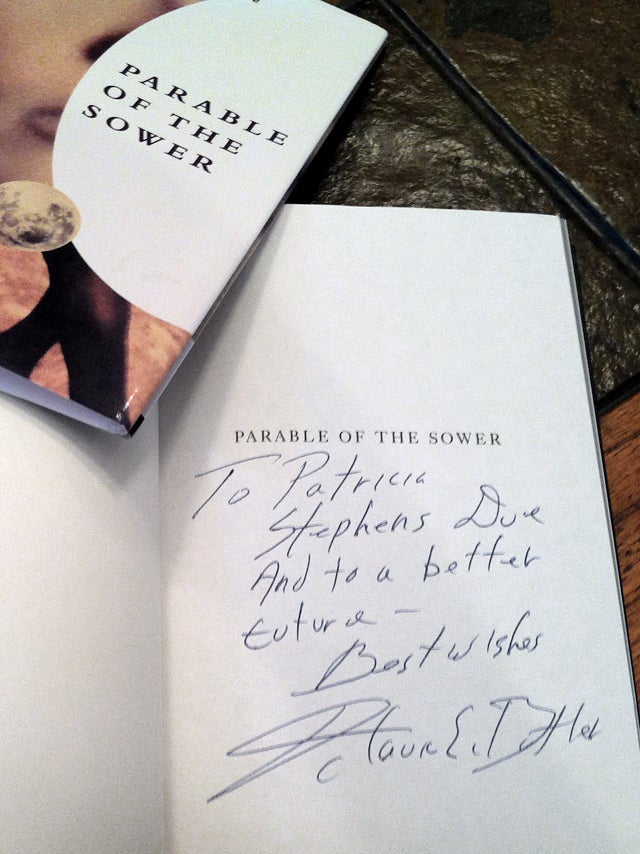
Butler, who would have turned 72 on June 22, is often called the Mother of Afrofuturism—or Black speculative fiction (science fiction, fantasy and horror). Long before my novels about African immortals that began with My Soul to Keep, Ryan Coogler’s Black Panther or the sci-fi horror of Jordan Peele’s Get Out, Butler was writing Black women into imaginary worlds with aliens, giving us powers of telepathy and sending us back to the slavery era to try to fix a horribly broken past. Afrofuturism—which spans literature, music, art and film—is Black artists’ proclamation of “I am, I was and I WILL BE,” straddling genres and styles to create Black art that imagines a world not quite our own. Afrofuturism is space travel, superheroes, sorcerers and seers. Afrofuturism is the audacity to imagine a thriving future for Black people, or any future.
Afrofuturism is the audacity to imagine a thriving future for Black people, or any future.
-Tananarive Due
Often, Afrofuturism travels across time to evoke the past, present and future in one snapshot, like Julie Dash’s brilliant film Daughters of the Dust. Butler, who became the first science fiction writer of any race or gender to win a MacArthur Foundation Fellowship “genius” Award in 1995, had a mighty high mountain to scale.
Raised in poverty by a single mother in a society waiting to ignore her, Butler created herself and her wide legacy in a true-life act of science fiction. She was oppressively shy, but her voice as a writer rang loud.
Her fans include everyone from singer and actress Janelle Monaé to African futurists Nnedi Okorafor and Wanuri Kahiu, who are cowriting Amazon Prime Video’s Wild Seed series with Viola Davis co-producing. Singers Toshi Reagon and Bernice Johnson Reagon of Sweet Honey in the Rock composed an entire opera based on Butler’s Parable of the Sower. A graphic novel adaptation of Butler’s time-travel tale Kindred, created by Damian Duffy and illustrated by John Jennings, won a Bram Stoker Award last year. And activist Adrienne Maree Brown’s book Emergent Strategy: Shaping Change, Changing Worlds draws directly from Butler’s philosophies.
“Whenever we try to envision a world without war, without violence, without prisons, without capitalism, we are engaging in speculative fiction,” activist and author Walidah Imarisha wrote in her introduction to the book Octavia’s Brood: Science Fiction From Social Justice Movements, which she co-edited with Adrienne Maree Brown. “All organizing is science fiction.” But Butler is no longer here to see her legacy grow.
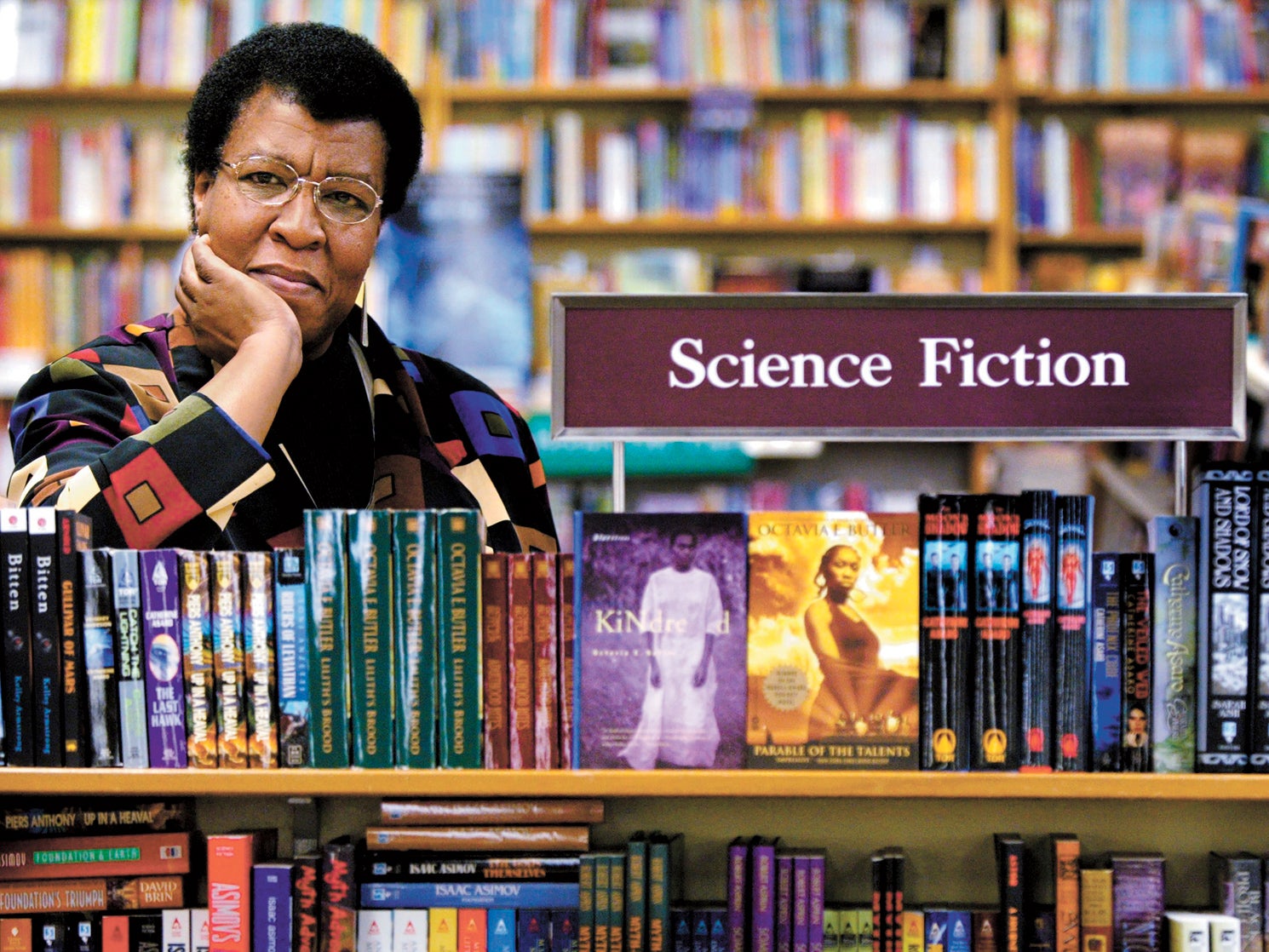
Six years after our visit, in 2006, she passed away. None of us had any idea during that long, pleasant afternoon that her remaining time would be so short—but even then, we saw glimpses of the rising wave of Black speculative art today’s readers and moviegoers are enjoying like never before. That day, we talked about the great response to the groundbreaking anthology her former writing student Sheree Renée Thomas had just edited, Dark Matter: A Century of Speculative Fiction From the African Diaspora, which included work from all of us. Black speculative fiction was coalescing into a movement, and Butler’s vision made her the movement leader. Her unwavering, unflinching study of our uglier tendencies made her a social prognosticator—if only we would listen.
In Dawn (1997), she saw humankind’s trajectory toward self-destruction and created an alien species that tries to save us. In her novels Parable of the Sower (1993) and Parable of the Talents (1998), she predicted our national decline down to a presidential slogan: “Make America Great Again.” And in her final novel, Fledgling (2005), she reimagined horror by creating a mutated vampire whose melanin allows her to walk in the light—and makes her a target to older pale-skinned vampires who want to destroy her.
During our visit, we asked her how she felt about being described as a pessimist. First she joked in faux surprise, as if she were taken aback—“Moi?” But then she circled back to the truth with a sigh. “Look at us. Look at us,” she said emphatically. “We’re not really that long-term.”
Nearly 20 years ago, Butler told us how she believed as a species we were destroying ourselves, pointing to our lack of action against climate change. She said climate change was already claiming lives in Africa and would claim more in the years to come. “What I’ve been harping on in the past five novels is, ‘How can we make ourselves a more survivable species?’ ” she said to us that day. How, indeed?
On Inauguration Day in January 2017, I published a blog post called “Surviving President Tr*mp: Lessons From the 1960’s and Octavia E. Butler.” I included a photo of an autograph Butler inscribed in Parable of the Sower to my late mother, civil rights activist Patricia Stephens Due: “To Patricia Stephens Due and A Better Future.”
To me, that photo encapsulates the powerful spirit of two women who fought the same battle on two fronts—my mother with her multiple arrests and trauma from state violence against her in the sixties, and Butler with the searing power of her art in the seventies and beyond. The irony, of course, is that Parable of the Sower is about anything but a better future—it’s a dystopia with the urgency of now that feels more like a documentary chronicling the crumbling of our society before our eyes.
I was very lucky to come to something I cared about more than I cared about anything else.
-Octavia Butler
Teenage protagonist Lauren Olamina, who has more wisdom than the combined adults in denial around her, is forced to grow up too soon. Lauren faces a world teeming with violence, poverty, unemployment and death. And she must do all of this with a disability/gift called Hyperempathy Syndrome, which means she literally feels the pain and dying of others around her—even if she’s the one who must injure or kill them. Parable of the Sower encompasses so many themes that recur in Butler’s work—the reluctant heroine who must take charge because of her gifts and integrity, the brutal impact of hierarchy and the seeds of hope embedded in her character’s Earthseed religion, which teaches that God is Change and that planning and action are the antidote to terror and tragedy. In Parable of the Sower, one Earthseed verse reads: “Belief initiates and guides action—Or it does nothing.”
That sense of urgency is what scholar Ayana Jamieson, Ph.D., says compelled her to devour everything Butler had written after a White colleague told her to read Butler because he thought she had Hyperempathy Syndrome. Jamieson had never read a Butler novel, but she was hooked after Parable of the Sower. “It calls us to action so we can realize alternatives are possible,” says Jamieson, founder and director of the Octavia E. Butler Legacy Network. “The tightrope between optimism and pessimism is really pragmatism—what are the concrete things you would need if aliens were here? What would you need if there’s no clean water or access to gasoline or the fire department doesn’t come? What if we didn’t have all the middle-class services we take for granted—if there’s no public education?” Jamieson says. “That horror is already a factor in the lives of marginalized folks and women—it’s not like you have to wait for the Apocalypse.”
During our 2000 interview with her, Butler recalled hearing criticism from Black readers that her science fiction wasn’t focused enough on race. Her first novels, Patternmaster (1976) and Mind of My Mind (1977), were about telepaths and shapeshifters who can inhabit the bodies of different races and genders. She used metaphor to examine racial and gender power dynamics. “I got it from other people during the sixties, when you were supposed to be so terribly relevant: ‘Why do you write that stuff? It’s not relevant. You should write something that’s more politically relevant to The Struggle,’ ” she told Steve and me.
Her answer to that criticism was 1979’s Kindred, about a contemporary Black woman who gets caught in a time loop that keeps returning her to the slavery era. Butler called Kindred “a long, depressing write” when we talked because of her immersion in the research on slavery. But she said it is her most taught and most popular book. And it’s often the first book I recommend to readers who have never read Butler’s work. Kindred reached one reader like a thunderclap. “The discovery was like a love letter from my ancestors,” says Thomas, who is also the author of Sleeping Under the Tree of Life. “As a history major, reading Kindred opened new portals of thinking for me, new ways of seeing myself, the role of history and the ways the stories we tell ourselves, within families or as a nation, shape and reshape us,” she says. “The experience was life-changing Octavia once said that she did not need to see a Black role model to create her work. The desire, her imagination and determination were always present, but I can truly say that I needed to see Octavia’s gifts on the page before my own paths became clear to me.”
My husband knew Octavia for about 25 years—and for 10 of those years in Los Angeles, where they lived within walking distance of each other. He and his previous wife traded dinner invitations with her. Octavia didn’t drive, so he often drove her on errands or to book events. We both believe that Octavia, had she lived, might have been astonished at how many Black women speculative writers are thriving in her wake: N.K. Jemisin, Nnedi Okorafor, Nisi Shawl, Nalo Hopkinson, Tomi Adeyemi, Andrea Hairston, Ibi Zoboi, Chesya Burke, Jewelle Gomez, Karen Lord and more. Steve says, “I would hope that her spirit understands that she made a tremendous difference.”
